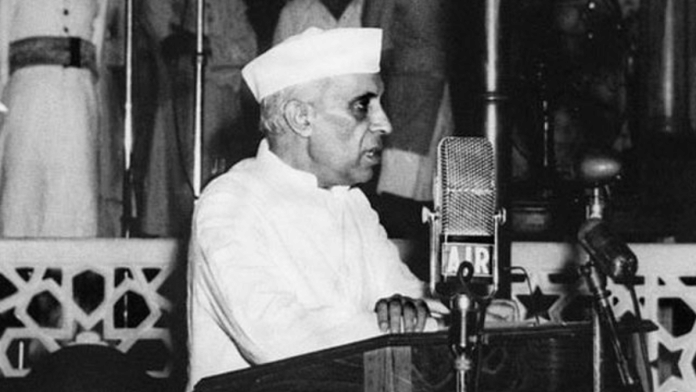New Delhi: Jawaharlal Nehru’s vast body of letters, speeches, and notes, long scattered across ageing volumes and restricted archives, is now available to anyone with an internet connection. With the newly opened Nehru Archive, a free digital repository built from 100 volumes preserved by the Jawaharlal Nehru Memorial Fund, he’s now accessible like never before.
When it comes to Nehru, praise and pillory take place in tandem—keeping him alive in more ways than one.
There are various threads and diverging narratives that coalesced to create Nehru, a larger-than-life statesman, a wily politician, and an enviable orator. And over 60 years after his death, the fascination continues to linger. He remains one of India’s most polarising figures. The archive, which has a sleek user interface—a far cry from crumbling physical archives—allows users to explore any one of these shades.
His letters, speeches, notes, and cursory exchanges have been divided into categories, obvious points of interest. There’s relations with Pakistan, Kashmir, the demand for Independence, his letters to Chief Ministers, the run-up to the Civil Disobedience Movement, Building a new India—and one section of the personal. The expanse is enormous. Its current avatar has been conceived through the digitisation of 100 volumes of Nehru, which are with the Jawaharlal Nehru Memorial Fund, the body behind the archive. However, it is an ongoing project, and the archive is due to become richer.
Nehru’s correspondences are staggering in their historical weight—as well as when it comes to the cast of characters who feature.
“Devadas apparently asked you as to what we should do with Gandhi’s assassin. I suppose he will hang, and certainly I shall not try to save him from the death penalty, although I have expressed myself in favour of the abolition of the death penalty in previous years. In the present case, there is no alternative,” wrote Nehru in a letter to George Bernard Shaw.
Devadas is Gandhi’s son, and Nehru barely knew Shaw. He had seen him only once, when Shaw delivered a lecture at Cambridge.
Also read: ‘Was Bhagat Singh only a nationalist?’ Irfan Habib reframes the icon
Resource for scholars
While traversing the archive, exploring its expanse and limitations, is an enjoyable activity— it can also serve as a crucial resource for scholars and researchers. The archive has audio-visual components and has a convenient search engine, allowing for research to be streamlined.
“This makes Nehru’s ideas and politics accessible to anyone wanting to know about Nehru from anywhere in India and beyond. And that helps researchers greatly. Because it’s online/digital, it will also be easily searchable, which helps researchers search for keywords, terms, phrases and themes more easily,” historian Vanya Vaidehi Bhargav told ThePrint. “The website also seems to be done aesthetically, with taste— always welcome, given the often dull governmental physical and digital archives.”
However, even those with just a perfunctory interest can have a field day. Nehru’s letters and observations create an image—that of a country on the cusp. There are several problems. Dollar reserves are depleting, thousands of refugees “squatting” outside the Prime Minister’s gate, and Nehru is alarmed by the response to his US visit. But it’s all in a day’s work.
“We have all passed through difficult times, and I fear our difficulties still encompass us. I have no doubt whatever that the history of India would have been different if you had not come here,” wrote Nehru to Lord Mountbatten, India’s final viceroy.
(Edited by Ratan Priya)






